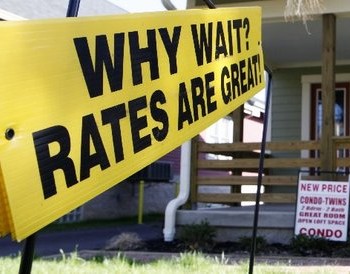If you have recently watched HGTV’s “Beachfront Bargain Hunt”, you’ll see that purchasing a vacation home may be more financially feasible than you originally thought. However, recent price appreciation and tight supply have caused vacation home sales to decline. According to the National Association of Realtors, the number of vacation homes purchased in 2016 declined 21 percent while median prices have appreciated by 4.2 percent to $200,000. While purchasing a vacation home can be a smart investment, TV shows often romanticize the process and fail to highlight all of the factors involved in making the right financial decision. Gaining an awareness of the misconceptions noted below may help you to decide if now is the right time to purchase that ski house or beach bungalow.
I can cover the costs by renting the property – overestimating income
By far, one of the biggest misconceptions regarding the purchase of a vacation home is that you will be able to cover 100 percent of the costs by renting it. Sure, there are certain circumstances and locales where this may be possible - You might even be able to rent for a profit. However, if you are planning on using the property for your own enjoyment for a large percentage of the time, you should not assume that renting the property will cover your cost. This is especially true if the rental season is short. (Think Jersey Shore or Utah). There are other rental costs that can eat into income too. While paying rental fees to a management company or realtor may be helpful when renting a property, owners often fail to calculate these costs which can be a drag on rental income. Bottom line – take a conservative approach with your rental income assumptions otherwise you may be in for a surprise.
Failing to consider assessments
Rather than worry about their property when they are not vacationing, many property owners are attracted to the turn-key nature of multi-unit condos and developments. However, turn-key benefits do come at a cost and many prospective buyers underestimate the inevitable assessments that come up over time. For example, replacing roofs, structures and other exterior renovations can all result in sizable expenses. In fact, it is not unheard of for one-time assessments to range from $1,000 to $20,000 depending on the scope of the construction taking place. Additionally, home owner’s association fees can increase substantially over time and should also be reviewed.
No supplemental insurance
It is also common for vacation property buyers to overlook the importance of maintaining proper insurance coverage. From flood and hurricane coverage to master policies, H06 policies and umbrella coverage, it is important to spend time consulting with an insurance expert to protect a vacation property. Too often, property owners cut corners by increasing deductibles to excessively high levels while reducing coverage amounts - all in an effort to reduce premiums. Remember, you generally get what you pay for and it is important to maintain proper coverage.
Over-assessing financial readiness
Purchasing a second home is a significant financial responsibility and many buyers jump in before they are truly financially prepared. Consider reviewing your personal financial plan to ensure you are on track for other goals prior to making such a significant investment. For example, it is important for any buyer to have sufficient emergency reserves, available cash flow, retirement funds, education funds, life insurance coverage, etc. before moving forward. Failing to do so could result in a second home purchase negatively impacting the achievement of your primary financial goals.
Assuming mortgage rules are the same as a primary home purchase
It is important to note that a second home and an investment property will be treated differently when it comes to financing. While down payment requirements and mortgage rates will generally be the same for a second home as they are for a primary residence, investment properties are treated a bit different, resulting in higher minimum down payments (20%) and interest rates that are generally ½ percent higher.
Assuming you will gain lucrative tax deductions
Owning a vacation home can result in additional tax deductions. However, there are passive activity loss rules that limit the deductibility of passive losses if your income is greater than $100,000 and how the property is used. For example, do you plan to use your vacation home for personal use, a rental or a combination of both? Personal use may result in receiving a tax deduction for mortgage interest and property taxes. Alternatively, renting out a property for greater than 14 days will result in income be reported along with deductions for rental expenses. Also remember, the amount of time that a property is used for personal use versus rental use will impact the allocation of deductible expenses so be sure to work closely with your CPA professional.
Failing to have a plan B
It is critical to establish alternate plans in order to protect your financial position from financial challenges that could arise. Consider assessing worst case scenarios that include declines in property value, reduced rental income, higher expenses/carrying costs along with reductions in your personal income or the loss of employment. Also consider how easy it may be to sell the vacation home in case of a financial emergency.
While a vacation home can bring years of enjoyment to your family, it is important to watch out for the mistakes commonly made by buyers. Taking a conservative approach to your projections may help protect your long-term financial goals. Since everyone’s situation is unique, consider speaking to your financial and tax advisers to determine the appropriate plan for you.









